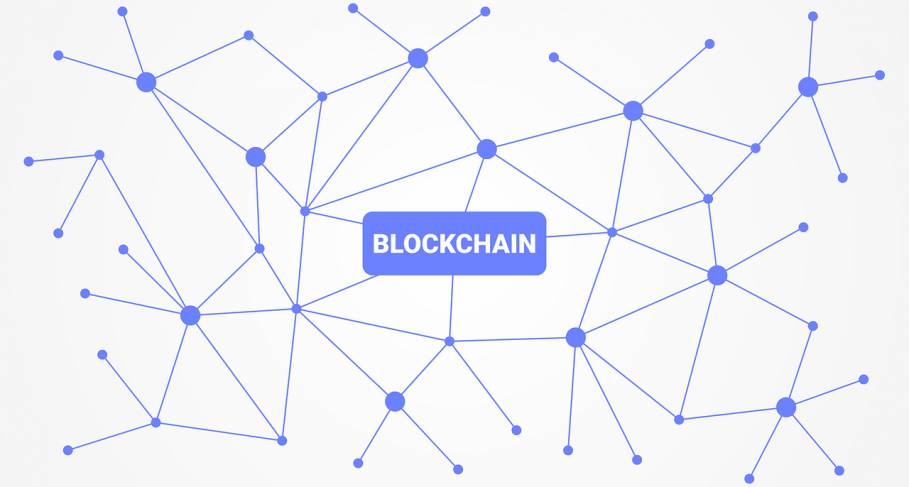Blockchain has become a buzzword in the EdTech sector.
The technology is commonly connected with cryptocurrency such as Bitcoin or, more recently, with so-called NFTs or “non-fungible tokens” that currently shake up the art world. In essence, Blockchain is a system of recording information that secures digital data in a way that makes it traceable and difficult to forge. On a public blockchain, the information recorded is unchangeable and shared in a community with each community member maintaining their copy of the information. Updates must be validated collectively. Each update is a new “block” added to the end of a “chain”. The technology can be used to authenticate the identities of people, to determine ownership, or to verify data. As such, it has wide applicability, for instance in the finance, legal and copyright, or healthcare systems.
Education presents several compelling use cases for blockchain technology, for example in student records or certification. Blockchain would allow learners to track and prove their lifelong learning progress or to preserve their educational data. Institutions could use the technology to administer certificates and credentials and to create a more seamless international exchange of students and researchers through recognition and certificate management. Blockchain can also become a real gamechanger regarding education in conflict zones. If a country’s education record-keeping system collapses, or people are displaced without access to their credentials, Blockchain’s ability to permanently secure digital degrees will allow a person to prove their educational or employment pathways.
Yet, in a 2021 study by the Center for Innovation, Technology, and Organization, University College Dublin, Dr. Quinn DuPont, and his team found that excepting the Massachusetts Institute of Technology (MIT), universities remain hesitant about employing Blockchain in meaningful and disruptive ways. Educational organizations adopting blockchain technology besides MIT are relatively recently founded, institutionally peripheral, and follow an online business model. If Blockchain provides such high value and potential for higher education institutions, why are they so hesitant to employ the technology? Three constraints prevent blockchain from being more widely adopted: technical knowledge, questions of sustainability, and specific cultural issues within the realm of education.
In terms of technical knowledge, universities would have to invest substantially into staff training and create user-friendly solutions. Administrative staff might be hesitant to employ new technology if its use case is not made clear to them. Blockchain technology is not trivial and evolving quickly so the training would have to be constantly updated and administered. This presents an ongoing expense – both in terms of time and financial resources – that universities and staff might be hesitant to commit to. A two-year Blockchain Innovation Challenge, paid for by the U.S. Department of Education and overseen by the American Council on Education (ACE) that funded four blockchain projects within higher education came to a similar conclusion, calling for administrative training early on and underlining the importance of staff’s technical understanding.
Apart from technical barriers, questions of sustainability might inhibit the widespread use of blockchain in higher education. Blockchain mining is the task of verifying a new block by the shared community. This act of “mining”, also known as “proof-of-work”, requires computing powers and energy. Bitcoin has already come under fire for its carbon footprint as mining the coins come with high energy costs. According to Park’s research on Blockchain, an “intra-school blockchain created, used and mined within one single education institution or small consortium is likely to be sustainably operated.” However, as the technology and its applicability in the EdTech sector evolves, sustainability needs to be kept in mind. Sustainability is at the core of many higher education institutions’ visions and plans. Universities might shy away from implementing blockchain technology if the potential environmental footprint remains unclear.
Lastly, cultural issues should not be neglected. An education blockchain creates a permanent and unchangeable record. While this is certainly useful in the realm of finance and health, education is by principle an area of growth and change. Audrey Watters points out the danger of such unchangeable data. Watters is critical towards the hype surrounding Blockchain in EdTech, pointing to the fact that both educators and institutions carry prejudices. Permanent, unchangeable data entry might solidify these prejudices to the detriment of certain subsets of students. The question of who would own this data, students, or educators, also remains unsolved. Universities might be unwilling or unable to address these questions and therefore remain wary of blockchain technology.
As of today, Blockchain is more of a hype phenomenon than a realistically implementable tool. Universities might not be willing or able to make investments in a technology that still has many unknowns attached to it. It remains to be seen if they are right to hesitate or if they will have to play catch up with smaller institutions later.
